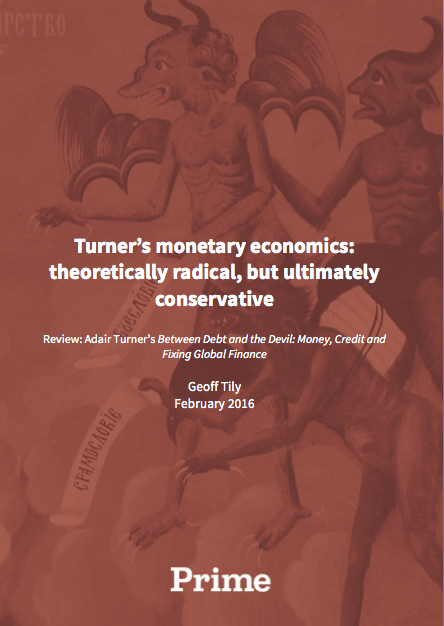“This talk of mine follows on addresses from Sir Josiah Stamp [technocrat and progressive] and Lord D’Abernon [financier and diplomat]. They have told you in different ways how the behaviour of the financial system and the banking system is capable of suddenly going off the rails, so to speak, and interfering with everyone’s prosperity for obscure and complicated reasons which are difficult to understand and probably impossible to explain in a popular way. It is a matter which ought to be left to the experts. They ought to understand the machine. And they ought to be able to mend it when it goes wrong.
It is hopeless to expect the man in the street even to discover what is amiss; far less to put matters right. Unhappily, however, the machine is not well understood by anyone. In a sense there are no experts. Some of those representing themselves as such seem to me to talk much greater rubbish than an ordinary man could ever be capable of. And I daresay there are people – I am sure there are – who will say the same about me and my ideas. In other words, the science of economics, of banking, of finance is in a backward state.” (Keynes, Radio Address, ‘The Slump’, 12 April 1931)
Introduction
Within certain communities, Between Debt and the Devil must qualify as eagerly awaited. Over the post-crisis period Adair Turner has emerged as one of the most prominent and respected figures in debate around the theory of money and debt, engaging with both radical and mainstream views. He emerges with two main targets: an economics profession that has failed to understand the nature of money and the manner of its creation, and the liberalisation process that led ultimately to the financial crisis of 2007-2008 and the ongoing economic crisis. The implication throughout is that his two targets are not unrelated, and the blame for the crisis attributed squarely to the economics profession (though with the financial sector seemingly absolved).
I suspect those who operate in this territory will find much that is familiar, and a good deal of the empirical analysis is drawn from existing sources. But Turner brings a wider range of material together in a coherent, compelling and very readable manner, and the work is plainly an important and authoritative contribution to post-crisis debate. It is also of the greatest importance that his work vindicates decades of work in various ‘heterodox’ traditions and constitutes the most profound challenge to mainstream economic theory. To the ‘heterodox’ reader it is of great interest to see how Turner resolves the various theoretical and practical arguments.
To my mind, while his theoretical critique is bold, the end point of his thinking remains basically conventional. His main policy asks are limited and not out of line with the evolving position of policymakers in supranational organisations and central banks, even in spite of vigorous support for more radical uses of expanded central bank balance sheets, notably ‘helicopter money’. His overall philosophy is summed up in this rather feeble credo:
I came to believe that the most fundamental problems of financial and economic instability … are created by activities … which in moderate amounts are clearly valuable, but on an excessive scale can cause economic disaster. (xiv)







